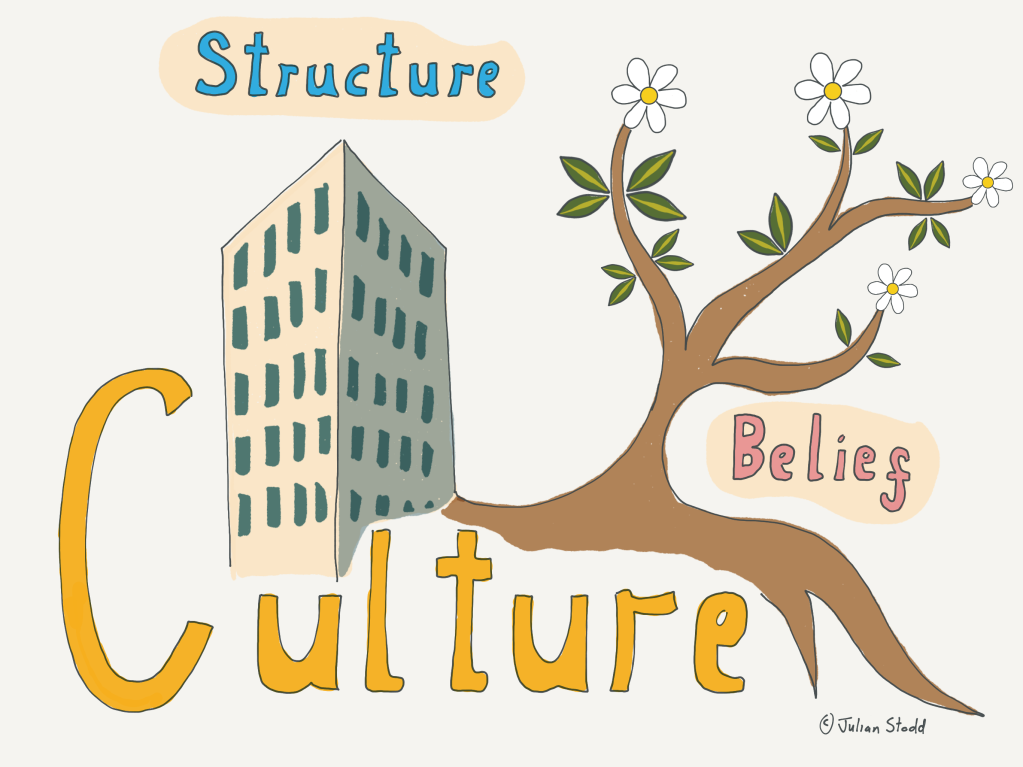‘Culture’ is both ideas, and things. It’s held in structure, rituals, artefacts, and both the stories and beliefs that surround these. And of course in our behaviour, towards one another.

It is discernible by looking around us, but also within us and between us. And hence within this understanding culture can be influenced, but not fully owned. It can be negotiated, but not fully imposed. It can isolate or include us, but not directly control us or constrain us.
Culture is analogue, in that it is negotiated and fluid, but digital in that we can be ‘in’ or ‘out’, we can stand ‘for’ or ‘against’. Presumably if we are not ‘on board’ then we are still ashore?
Or perhaps swimming in the sea. Adrift.
The question of leadership and culture becomes something quite challenging: it’s a topic that Organisations are interested in – which presumably means they think that culture can ‘give’ them something – and yet they are also fearful of it – because subcultures and hidden cultures sit at the heart of behaviours and ideas that they dislike or mistrust.
It is naive to conflate ‘culture’ with ‘good’, and to believe that it is simply one thing, rather than many.
Sometimes we talk of culture like the weather – it just is – but that is to miss the point that we can influence, negotiate, and shape it. It’s not just about sheltering from it – we can change it. Or at least one dimension of it.
I am inclined to take a holistic view of culture – and of the role of leadership within it.
First: one cannot hope to navigate culture without first understanding it, which requires a humility to move beyond our innate and lived experience of it (which makes all of us experts) and to develop or adopt a common vocabulary and our individual schemas with which to understand it. The better our vocabulary, the more likely we are to be able to move beyond rhetoric or dogma.
Secondly, i don’t think we can consider culture without exploring power. Not that power can directly ‘change’ culture – but you cannot change culture without power. Just not necessarily formal power. Influence and social authority are mechanisms of cultural power.
My current language around culture is that it is a negotiated phenomena, between you and me, between me and the structures of system, and within my own understanding (and head). Or to phrase it another way – culture is belief, experience, and interaction.
I am attached to the language of ‘culture weaving’, and indeed this is the working title of the book that i’m making notes for. ’Culture Weaving’ speaks to an act of leadership that is purposeful, but not dominating. It ties into the new language i’m using around Social Leadership, relating to motion and boundaries.
So what is culture?
Something we see, something we believe, and the things that we do, towards and between us. And the environment within which we do these things.
#WorkingOutLoud on Culture

